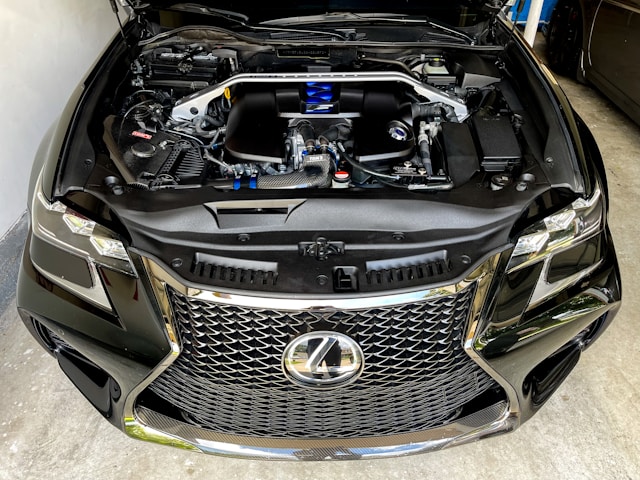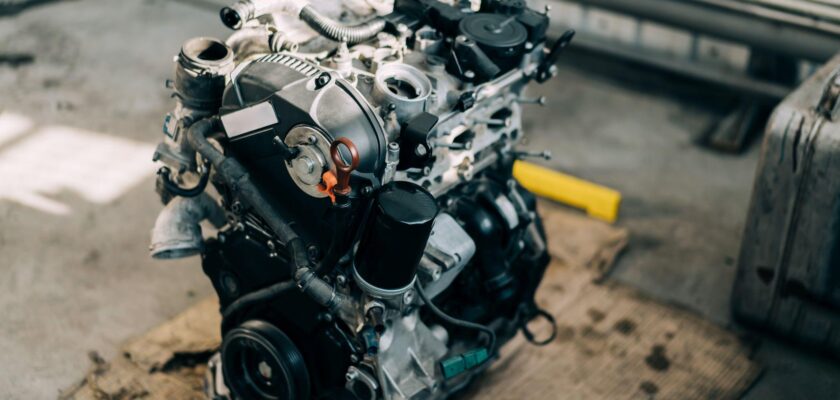Selecting a quality JDM engine requires understanding multiple factors that influence performance, reliability, and long-term satisfaction. The complexity of evaluating imported engines from Japan demands knowledge of quality indicators, documentation requirements, and technical specifications that distinguish exceptional engines from those that may present problems or disappointments.
Mileage Verification and Documentation
Authentic mileage documentation represents one of the most crucial factors in JDM engine evaluation, as Japanese vehicle inspection systems and cultural attitudes toward vehicle maintenance create significantly different mileage patterns compared to other markets. Understanding these differences helps buyers make informed decisions about engine condition and expected longevity.
Japanese vehicle inspection requirements, known as Shaken, encourage regular vehicle replacement rather than extended use, resulting in engines with genuinely low mileage compared to similar-aged domestic engines. However, verification of these mileage claims requires careful examination of documentation and physical evidence.
Proper documentation should include original Japanese inspection records, auction sheets, and export paperwork that can be cross-referenced to verify mileage claims. Reputable suppliers provide this documentation as standard practice, while questionable sources may lack proper verification materials.
Compression Testing and Mechanical Assessment
Compression testing provides objective measurement of engine internal condition, revealing potential issues with valve sealing, piston rings, or head gasket integrity that may not be apparent through visual inspection alone. These tests should be performed systematically across all cylinders to identify variations that might indicate problems.
Proper compression testing procedures require warmed engines, removed spark plugs, and standardized testing conditions to produce reliable results. Compression readings should fall within manufacturer specifications and show minimal variation between cylinders to indicate good internal condition.
Additional mechanical assessments should include leak-down testing, oil analysis, and visual inspection of external components for signs of wear, damage, or improper maintenance. These evaluations provide comprehensive understanding of engine condition beyond simple compression measurements.
Physical Condition and External Assessment
Visual inspection of JDM engines reveals important information about maintenance history, operating conditions, and potential issues that may not be apparent from documentation alone. Experienced buyers learn to identify signs of proper care versus neglect or abuse that could affect long-term reliability.
Engine bay cleanliness, paint condition, and component appearance provide insights into maintenance standards and operating environment. Well-maintained Japanese vehicles typically show consistent care throughout all systems, while neglected vehicles often display multiple indicators of poor maintenance.
Specific attention should be paid to timing belt condition, accessory drive systems, and fluid contamination that could indicate internal problems or deferred maintenance. These details help distinguish engines from vehicles that received proper care versus those that may have been abused or neglected.
Provenance and Source Verification
Understanding the source and history of JDM engines helps assess quality and reliability potential while avoiding engines that may have questionable backgrounds or undisclosed problems. Reputable importers maintain detailed records about vehicle sources and inspection procedures.
Engines sourced from Japanese dealership trade-ins typically offer higher quality than those from auctions or unknown sources, as dealership vehicles often receive proper maintenance and operate under less demanding conditions. This provenance information can significantly influence engine quality and longevity.
Verification of seller reputation, import procedures, and quality control processes provides additional assurance about engine condition and seller reliability. Established importers with proven track records typically offer better quality and customer support than unknown or questionable sources.

Photo by Myron Mott on Unsplash
Technical Specifications and Compatibility
Understanding specific engine variants and their technical differences ensures proper selection for intended applications while avoiding compatibility issues that could complicate installation or performance goals. JDM engines often feature specifications that differ from domestic market versions.
Power output ratings, compression ratios, fuel system requirements, and emissions equipment specifications vary between JDM and domestic engines, affecting both performance characteristics and installation requirements. These differences must be understood before purchase to ensure successful application.
ECU compatibility, wiring harness requirements, and sensor configurations often differ between JDM and domestic engines, requiring careful planning for successful integration. Understanding these technical details prevents costly mistakes and installation delays.
Age and Storage Considerations
The age of JDM engines affects various components differently, with some systems becoming more susceptible to deterioration over time regardless of mileage. Rubber seals, gaskets, and hoses may require replacement even on low-mileage engines due to age-related deterioration.
Storage conditions during transportation and warehousing can significantly impact engine condition, particularly for engines that remain in inventory for extended periods. Proper storage procedures protect engines from moisture, contamination, and corrosion that could affect reliability.
Climate differences between Japan and destination markets may accelerate certain types of deterioration, making inspection of age-sensitive components particularly important. Preventive replacement of these components often proves more cost-effective than addressing failures after installation.
Warranty and Support Services
Comprehensive warranty coverage demonstrates supplier confidence in engine quality while providing protection for significant investments. Warranty terms should cover both mechanical failures and undisclosed condition issues that may not be apparent during initial inspection.
Technical support availability helps ensure successful installation and operation while providing resources for troubleshooting potential issues. Suppliers with extensive technical knowledge and support capabilities typically offer better long-term value than those providing only basic sales services.
Parts availability and ongoing support for maintenance and repairs become crucial considerations for long-term ownership satisfaction. Suppliers who maintain relationships with parts sources and technical specialists provide better support for continued operation and maintenance.
Installation and Integration Planning
Professional installation requirements vary significantly between different JDM engines and target vehicles, with some swaps requiring extensive modifications while others offer relatively straightforward integration. Understanding these requirements helps budget properly for complete project costs.
Emissions compliance considerations may require additional equipment or modifications depending on local regulations and testing requirements. Planning for these requirements prevents costly surprises and ensures legal operation in jurisdictions with strict emissions standards.
Supporting modifications for cooling, fuel delivery, and engine management often become necessary for optimal performance and reliability. These requirements should be factored into project planning and budgeting to ensure successful completion.
Performance Expectations and Modifications
Understanding baseline performance characteristics helps set realistic expectations while planning for potential modifications or enhancements. JDM engines often provide different power delivery characteristics compared to domestic alternatives, affecting driving experience and performance applications.
Modification potential varies significantly between engine families, with some designs accommodating substantial power increases while others may be limited by internal component strength or design constraints. Researching modification history and aftermarket support helps assess future upgrade potential.
Tuning requirements for optimal performance often involve specialized knowledge and equipment that may not be readily available in all markets. Access to qualified tuning services becomes an important consideration for maximizing engine potential and ensuring reliable operation.

Photo by Vitali Adutskevich on Unsplash
Cost Analysis and Value Assessment
Total project costs extend beyond engine purchase price to include shipping, installation, supporting modifications, and ongoing maintenance requirements. Comprehensive cost analysis helps ensure that JDM engine selection provides good value compared to alternative solutions.
Comparison with rebuilt domestic engines, crate engines, or other alternatives helps establish whether JDM engines provide sufficient advantages to justify their costs and complexity. This analysis should consider both initial investment and long-term ownership costs.
Resale value considerations may favor certain engine choices over others, particularly for vehicles that may be sold in the future. Popular engine swaps typically maintain better resale value than obscure or difficult-to-service alternatives.
Supplier Selection and Due Diligence
Researching supplier reputation, customer reviews, and business practices helps identify reliable sources while avoiding questionable sellers who may provide poor quality engines or inadequate support. This due diligence proves crucial for successful engine purchases.
Communication quality and technical knowledge demonstrated by suppliers often correlates with overall service quality and reliability. Suppliers who provide detailed technical information and answer questions thoroughly typically offer better service than those providing minimal information.
Business practices regarding shipping, handling, warranty claims, and customer support reveal important information about supplier reliability and professionalism. These factors significantly influence the overall purchase experience and long-term satisfaction.
Market Trends and Timing Considerations
Understanding market trends and seasonal variations helps optimize purchase timing for best availability and pricing. Certain engines experience periods of high demand that may affect pricing and availability, making timing an important consideration.
Import regulations and policy changes can affect engine availability and costs, making current market conditions important factors in purchase decisions. Staying informed about regulatory developments helps anticipate potential changes that could affect future availability.
Currency fluctuations and international shipping costs influence JDM engine pricing, creating opportunities for cost savings during favorable market conditions. Monitoring these factors helps optimize purchase timing for best value.
Quality Assurance and Inspection Services
Third-party inspection services provide independent verification of engine condition and documentation accuracy, offering additional assurance for significant purchases. These services can identify potential issues that might not be apparent to buyers without extensive technical experience.
Professional evaluation services help buyers without extensive mechanical knowledge make informed decisions about engine condition and suitability for intended applications. This expertise proves particularly valuable for expensive or rare engine purchases.
Documentation verification services can authenticate Japanese paperwork and auction sheets, providing confidence in mileage claims and vehicle history. This verification becomes particularly important for high-value engines where documentation accuracy significantly affects value.
Long-term Ownership Considerations
Maintenance requirements for JDM engines may differ from domestic alternatives, requiring specialized knowledge, tools, or procedures that affect long-term ownership costs and complexity. Understanding these requirements helps assess total ownership costs accurately.
Parts availability for ongoing maintenance and repair varies significantly between popular and obscure engine models, affecting both costs and convenience of long-term ownership. This consideration becomes particularly important for engines from limited production vehicles.
Technical support and specialist knowledge availability in local markets influences the practical aspects of JDM engine ownership. Areas with strong import communities typically offer better support than regions where these engines are uncommon.
The reputation and expertise of companies like Texas JDM Motors becomes crucial in ensuring access to quality engines with proper documentation and support services. Established specialists provide the knowledge and resources necessary for successful JDM engine selection and ownership, making supplier choice one of the most important decisions in the engine selection process.
